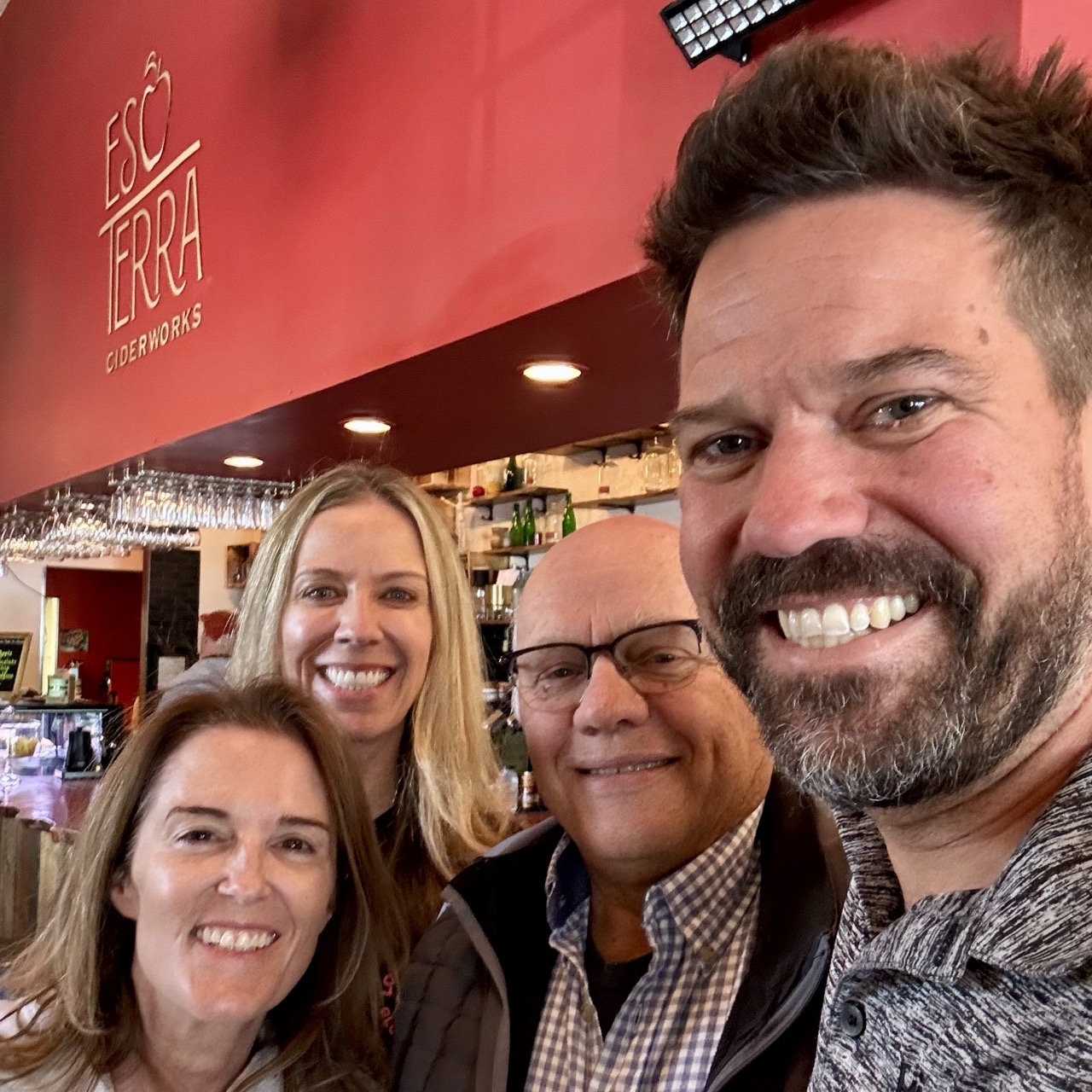A meditation on standing tall, eating well, pulling back, tuning in, and finding balance in life
Balance Is a Moving Target
I’ve been thinking a lot about balance lately.
Not just the kind that keeps you from tipping over when you’re walking on a rocky trail or holding a yoga pose. But the kind that threads through your entire day—quietly adjusting itself from one moment to the next. Balance in your body, your plate, your head, your heart. In your work. In your relationships.
Balance isn’t something you “find” and keep forever. It’s something you practice, lose, and return to—again and again.
It’s a rhythm. Or maybe a song you’re constantly remixing. Adjusting the bass and treble until things sound just right. Some days you hit it. Other days, not even close. But tuning in? That’s the key.
Warrior II and a Broken Finger
Take yoga, for example.
Warrior II looks simple, but once you’re in it—feet grounded, arms reaching in opposite directions—you realize it demands presence. You’re rooted and open at the same time.
It’s a stance that reminds me I’m strong, I’m capable, and I’m ready for the day.
Then there’s the less graceful side of balance—like when I flew over the handlebars of my mountain bike during a race and broke a finger. That moment was humbling. I finished the race, sure. But it cost me. Physically and emotionally.
It taught me that I don’t need to race through life. I can push myself without pushing past myself.
This Harvard Health article on yoga and balance explains how foundational poses like Warrior II build both strength and mental focus.
Oatmeal in the Morning, Brownies at Night
Balance shows up in the kitchen, too.
Every morning starts with a bowl of oatmeal that’s become its own kind of meditation. Not just oats—flax, chia, hemp seeds, cranberries, dates, cacao, cinnamon, nutmeg, and blueberries. A whole rainbow in a bowl. It grounds me.
And at night? A different ritual. My wife and I make ice cream sundaes with homemade brownies and chocolate syrup.
It’s how we say: “We made it through today. Let’s celebrate that.”
I don’t count calories. I count colors, satisfaction, and joy. Especially during work travel, I try to stay balanced—fruit in the bag, a drink mix for breakfast, moderation on the road.
Emotional Centering and Curious Dogs
I remember being a kid, standing in a schoolyard, getting mocked for what I was wearing. Back then I’d lash out—or withdraw. Now I try to laugh. Not dismissively, but compassionately.
People project their own stuff. Unless my shirt’s actually unbuttoned (which—thank you), I let it go.
Balance, emotionally, isn’t about always being calm. It’s about choosing the right energy for the moment.
I use tools to stay centered:
– 10 minutes of meditation each morning
– Journaling each night
– Morning dog walks to absorb their pure joy
– Classical music at dinner to slow things down
These little rituals help me stay aware of where I am—and where I need to be.
Over-Giving, Pulling Back, and Showing Up
In relationships, balance is one of the trickiest dances.
I tend to over-give—especially at the beginning. Friends, partners, colleagues—I show up. And sometimes, the other person doesn’t.
That realization stings.
In romance, it’s heartbreak. At work, it’s a wake-up call. In both cases, it’s an invitation to reevaluate.
I’ve had to learn to step back. To let others meet me in the middle—or not at all. Sometimes the healthiest thing is space. A little distance to reset, recalibrate, and then reconnect.
Work That Feeds Me
Right now, I’m in a good place professionally.
About 90% of what I do brings me joy—and I know how rare that is. I get to connect with people. Host meaningful conversations. Create. Grow.
Joy at work is a gift—but like anything else, it needs support, alignment, and structure to stay balanced.
I’ve got a manager who helps me stay grounded. They push me into the discomfort that leads to growth—like speaking more and owning my voice.
Still, I’ve got room to grow. I want to get better at communicating what I’m doing and syncing up with others. I like working solo, but I know I’m stronger when I collaborate.
Tuning In, Every Day
Balance isn’t a finish line. It’s not something you achieve and lock in forever.
It’s rhythm. Some days, a steady beat. Other days, a jazz solo that barely holds together.
But I trust I can come back to it.
Pause. Adjust. Tune in.
Like fine-tuning a photo until the colors pop.
Like shifting my weight in Warrior II.
Like making a sundae—not for nutrition, but for joy.
So here’s my question for you:
Where do you feel off-balance right now? And what’s one small thing you can adjust—today—to bring it back into tune?
